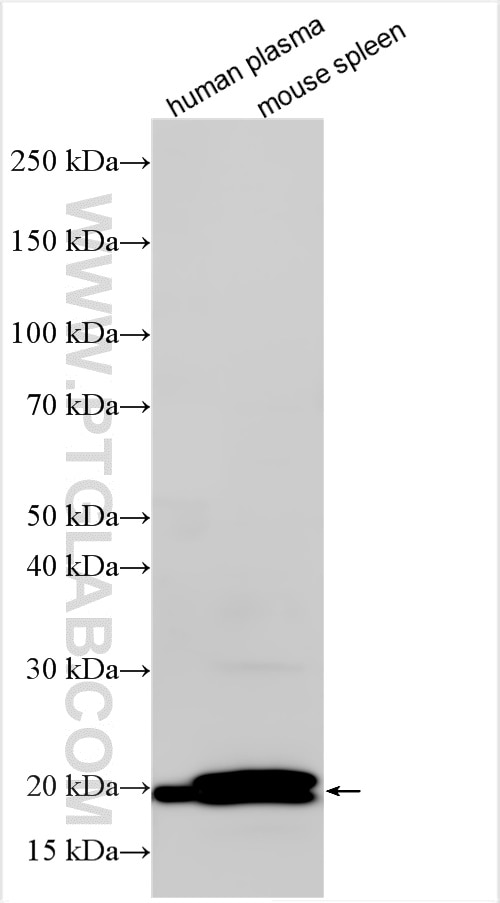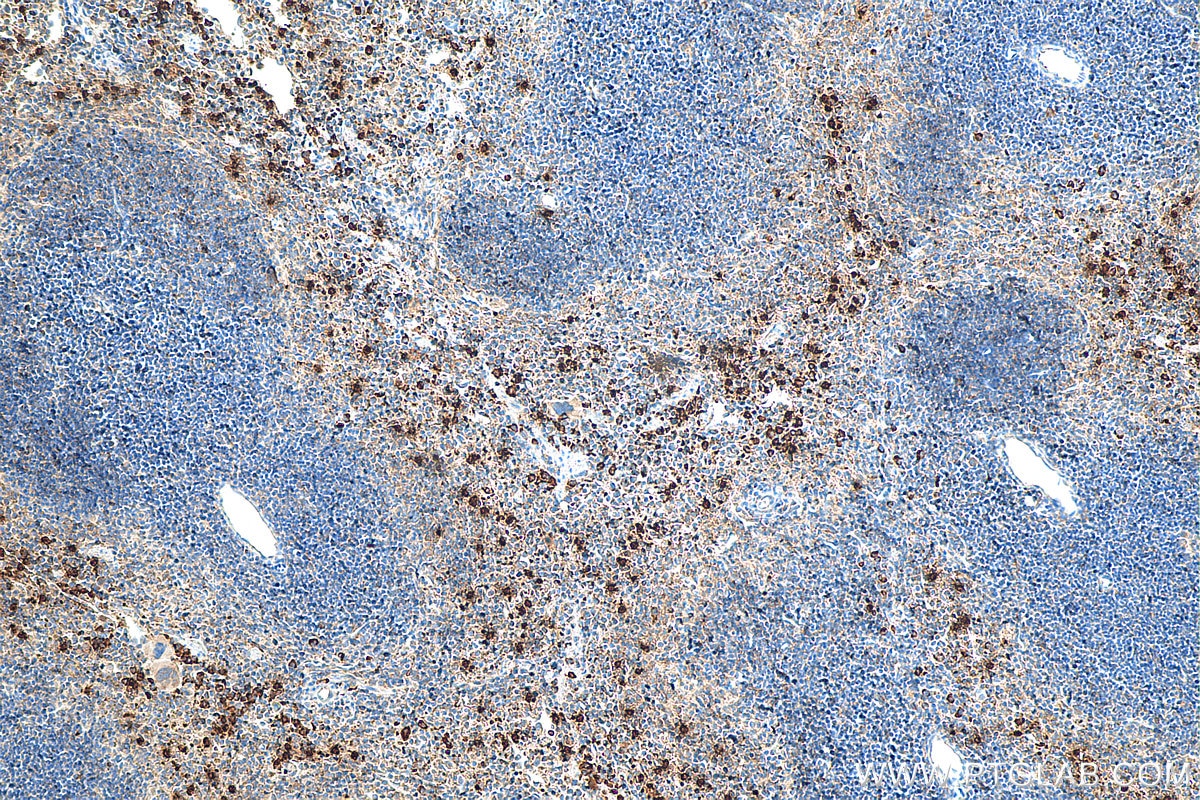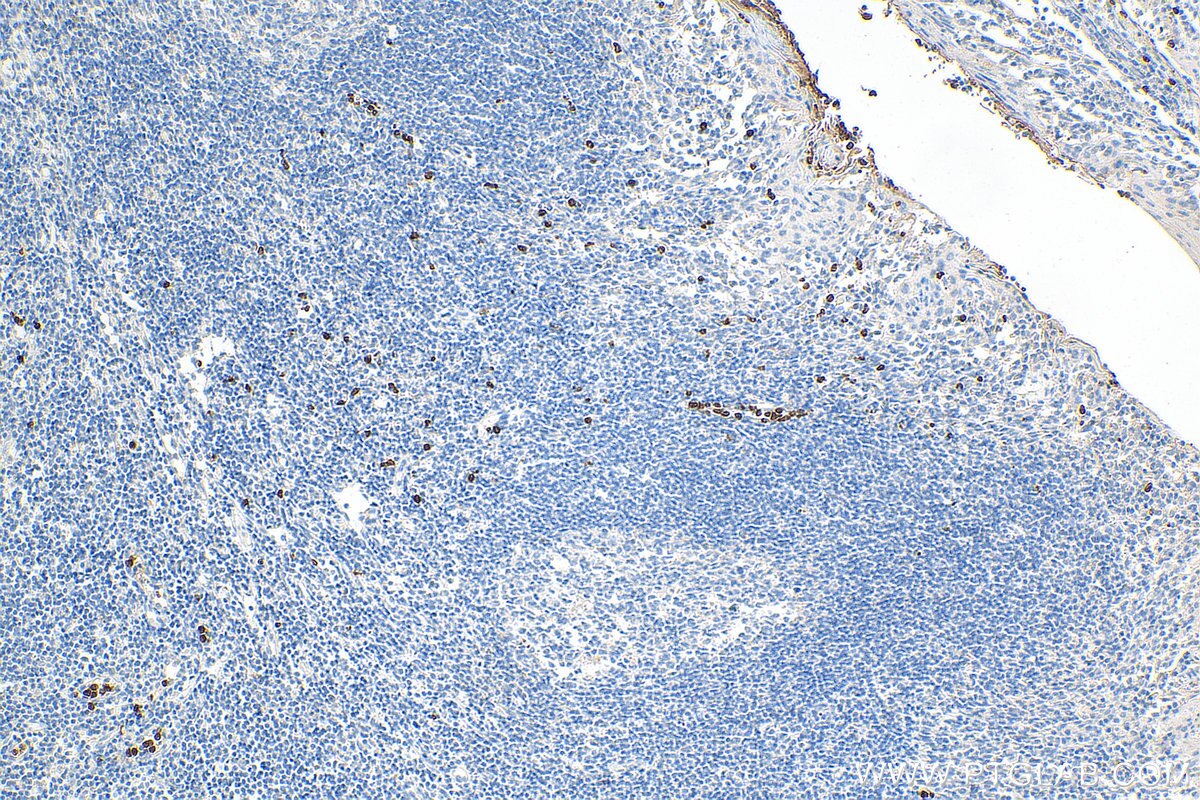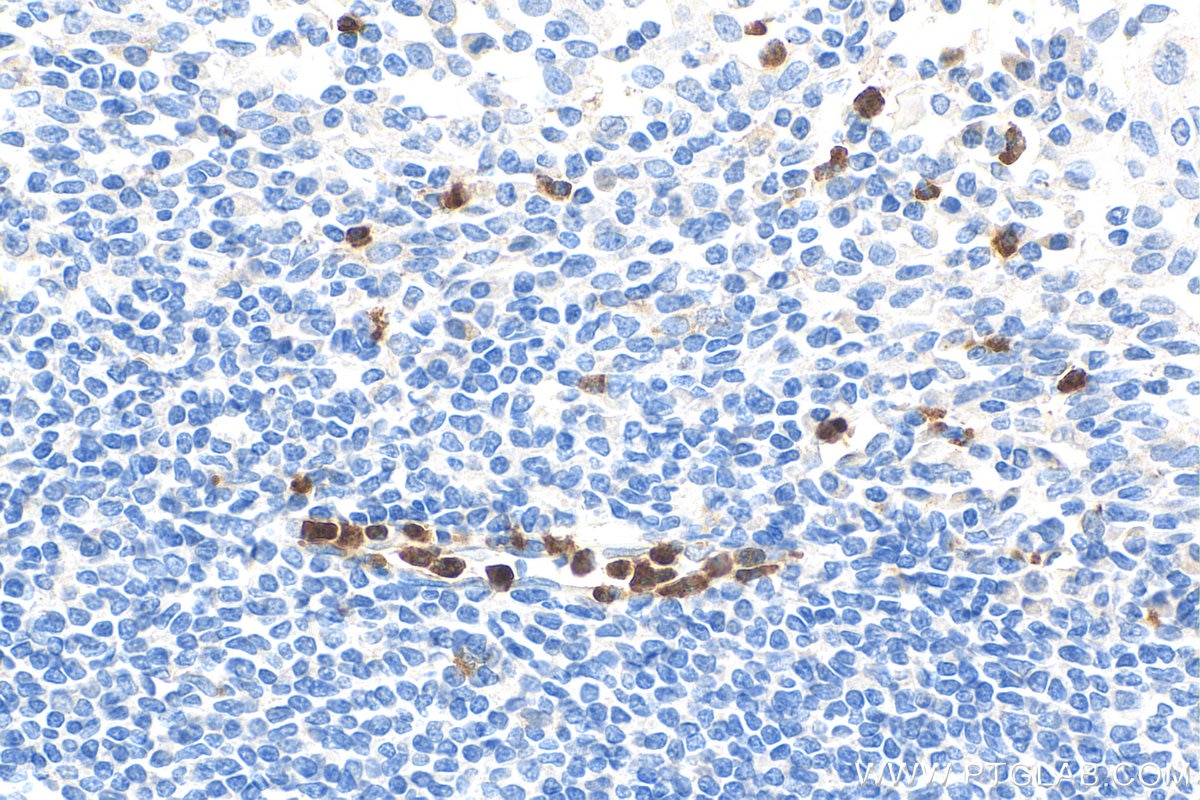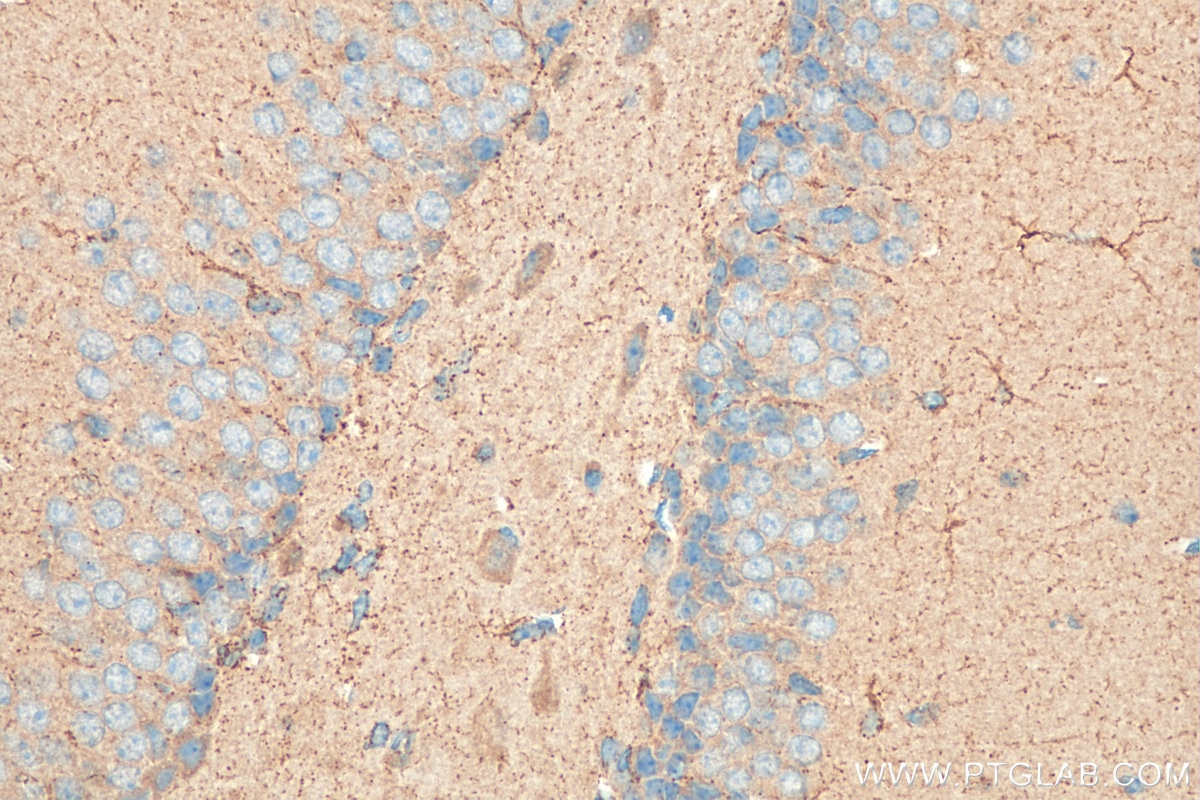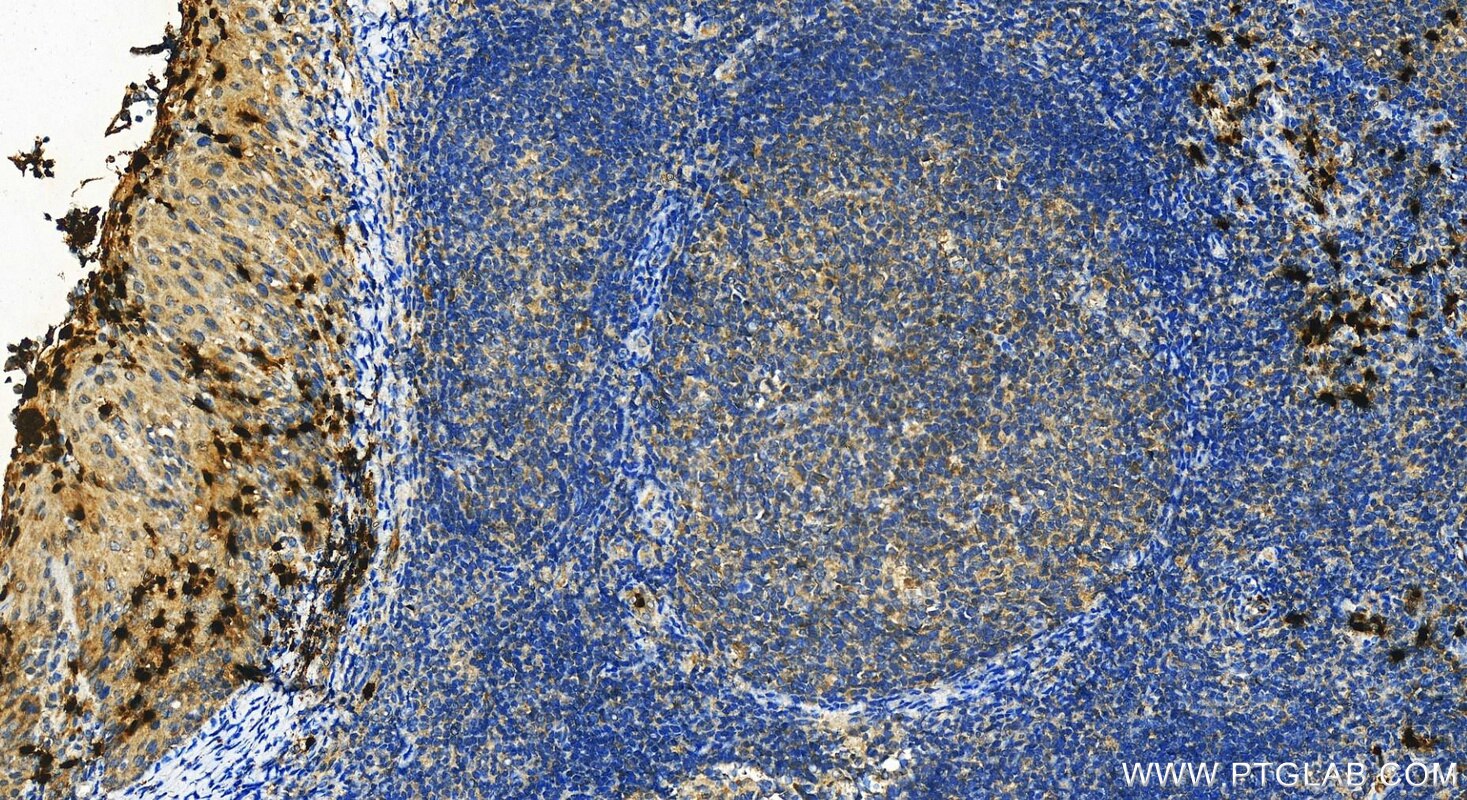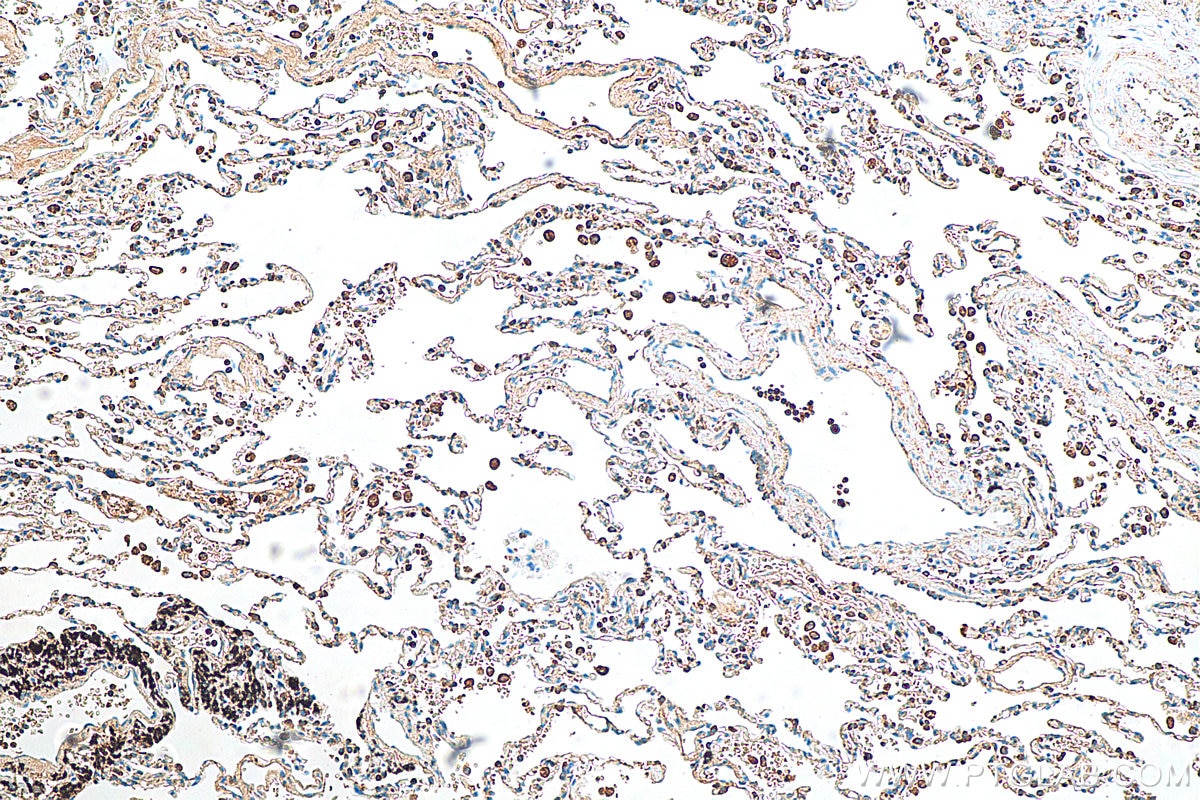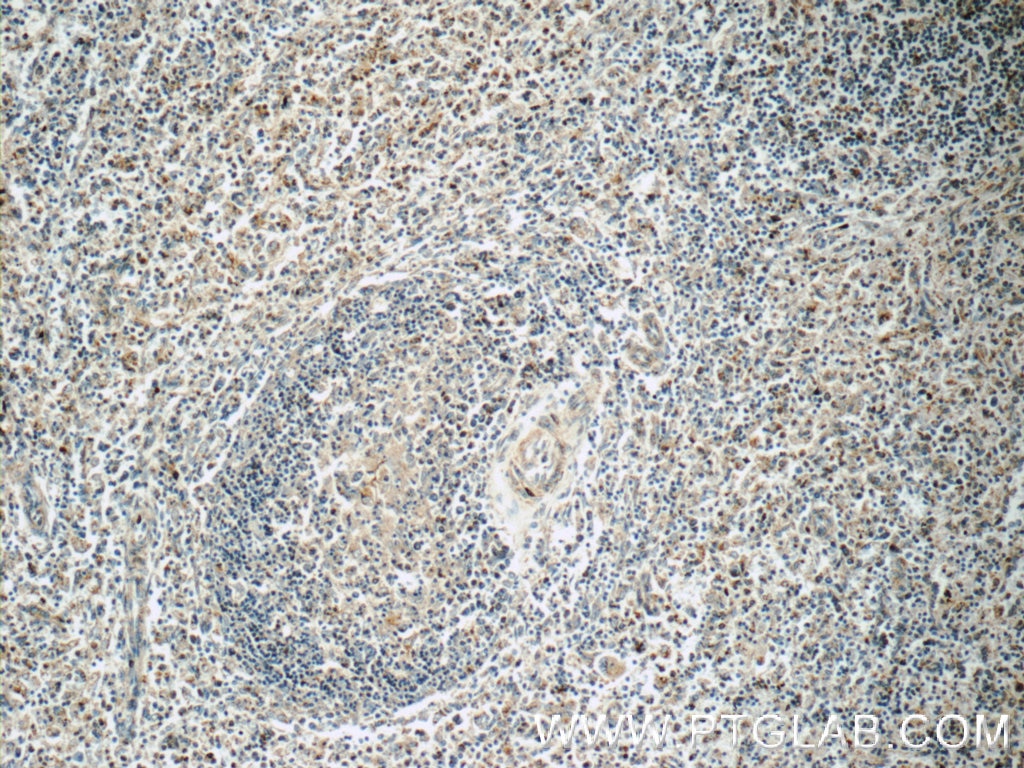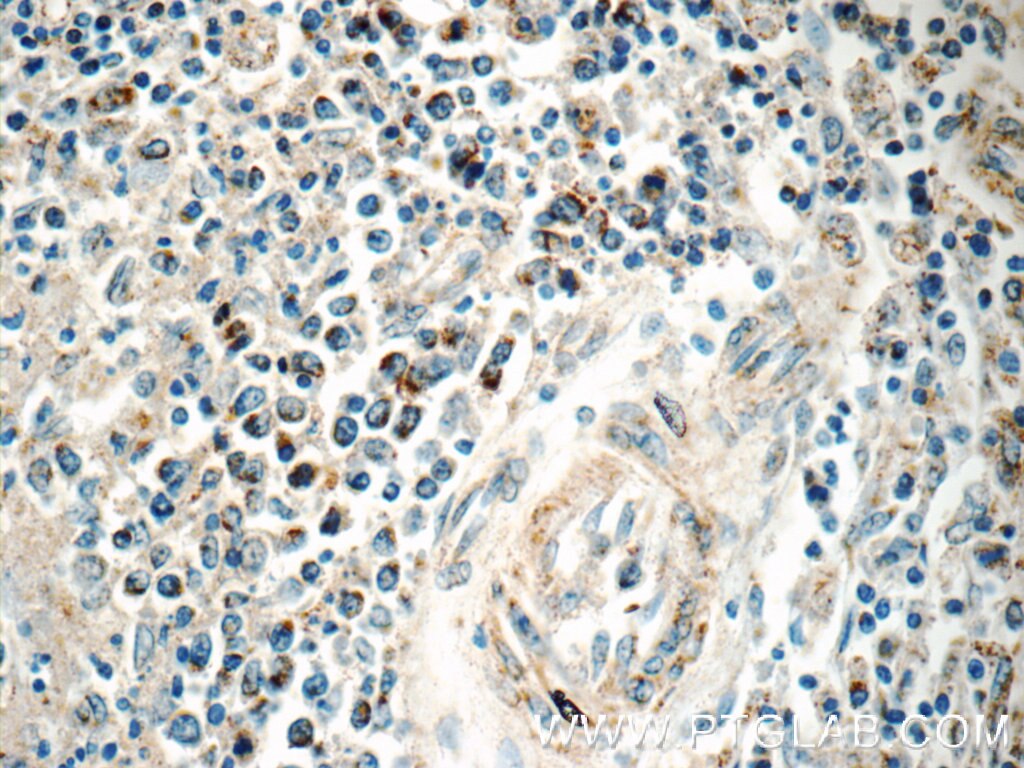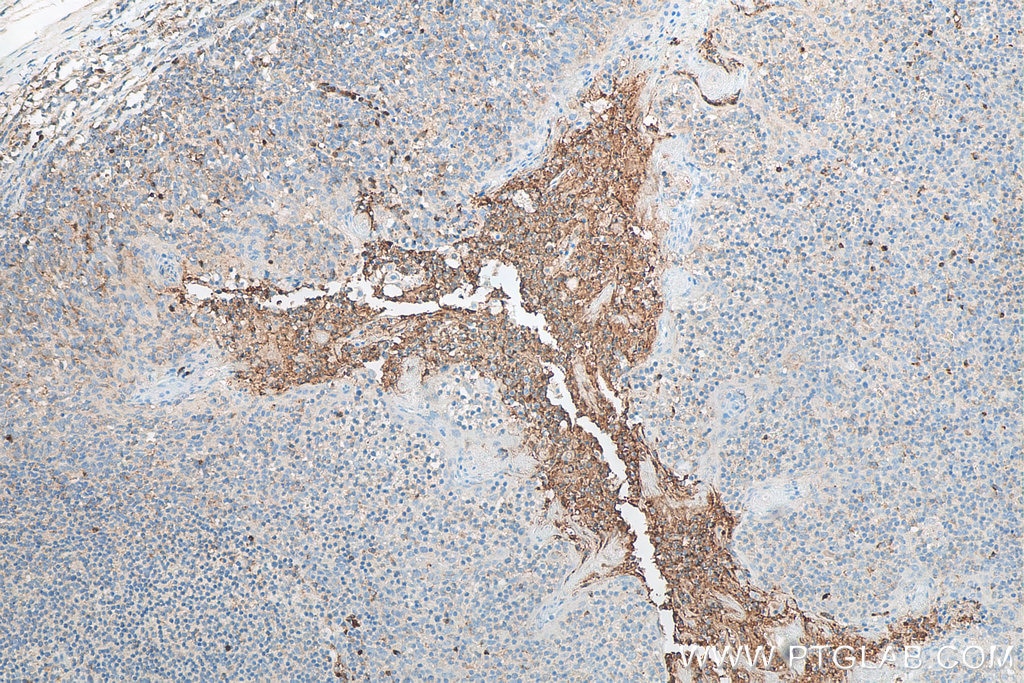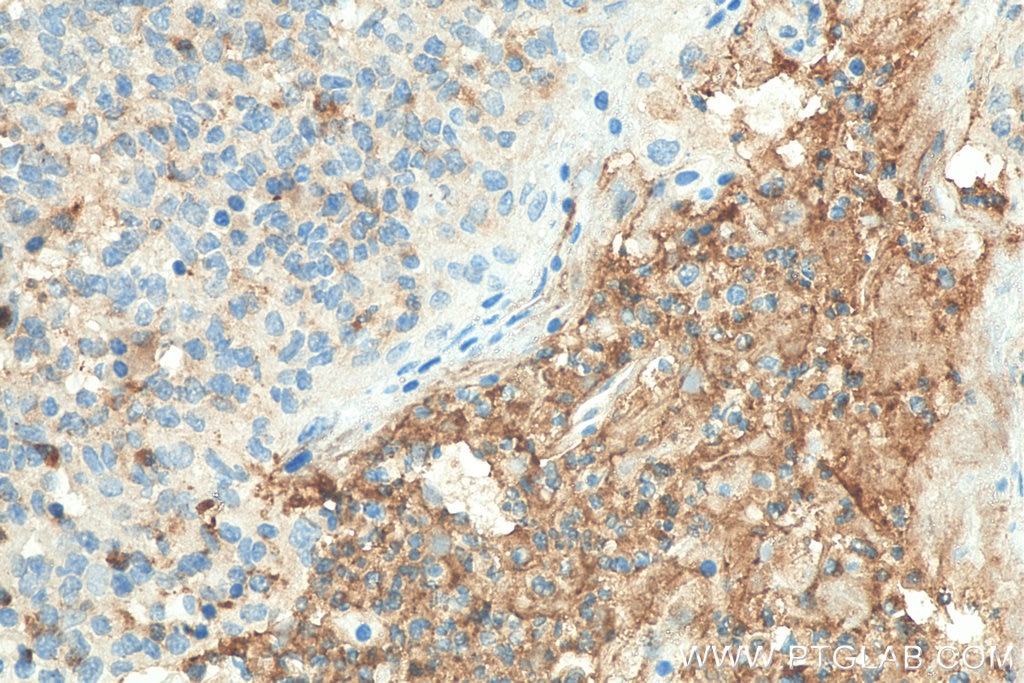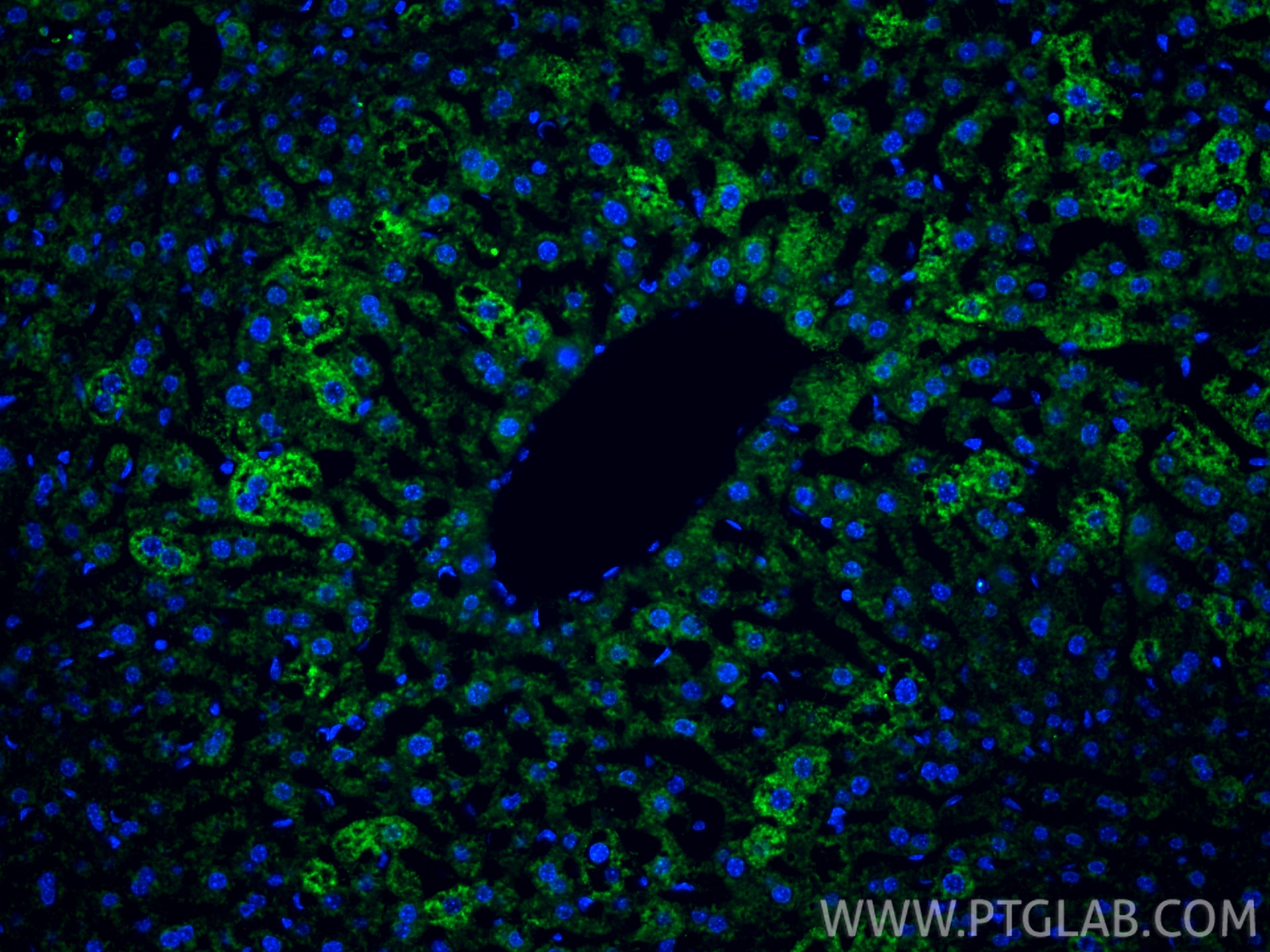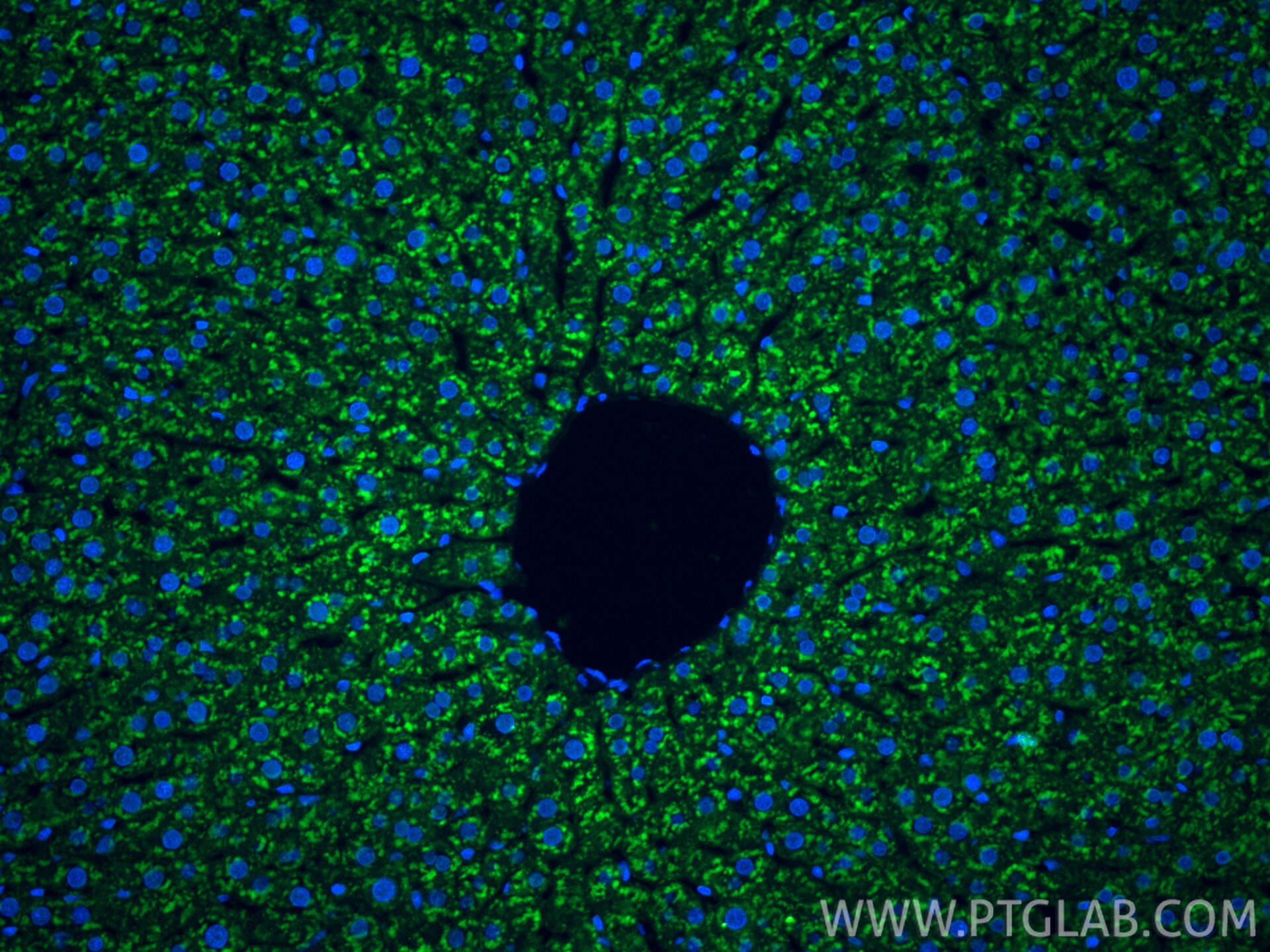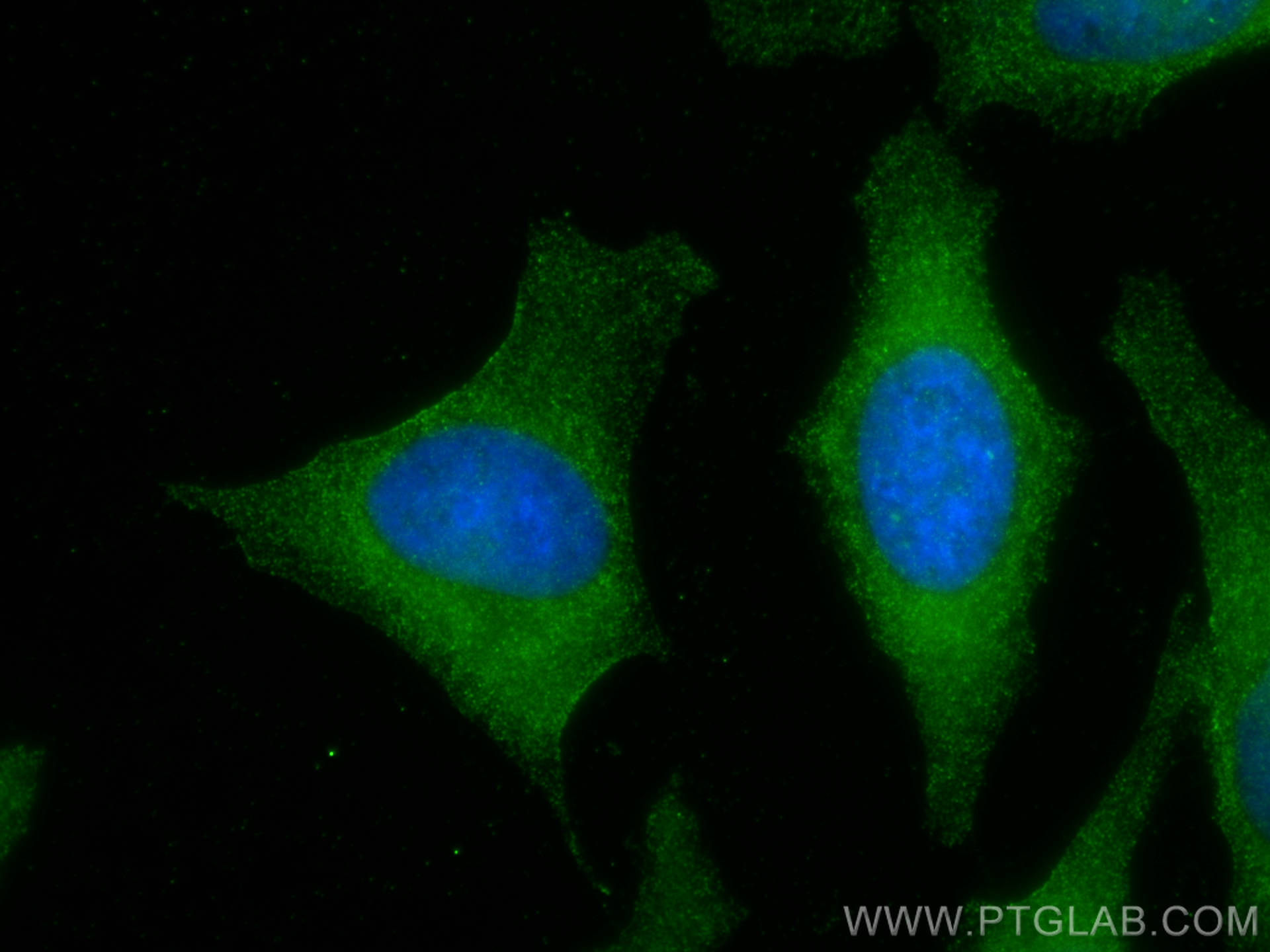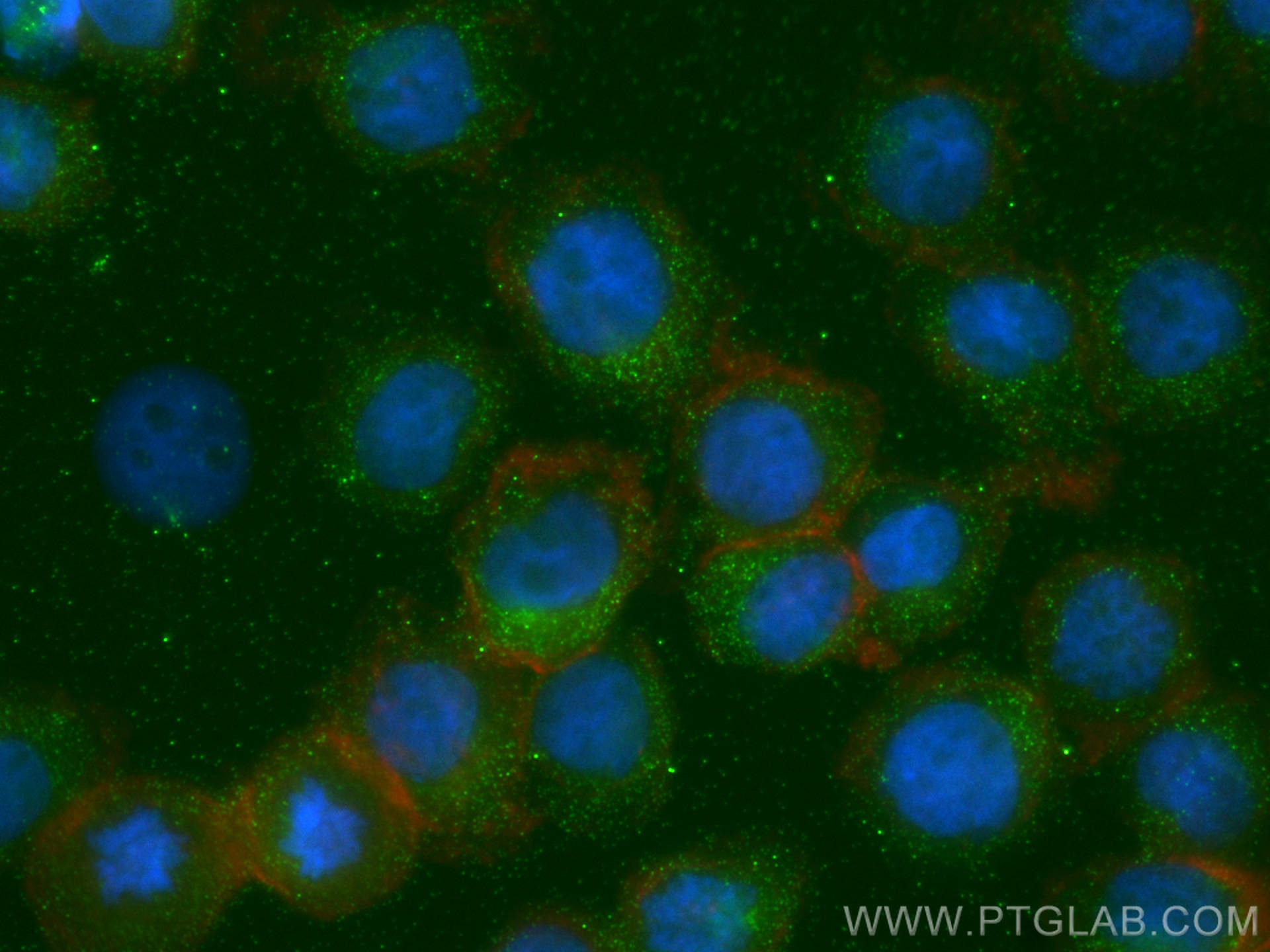CAMP Polyklonaler Antikörper
CAMP Polyklonal Antikörper für WB, IHC, IF/ICC, IF-P, ELISA
Wirt / Isotyp
Kaninchen / IgG
Getestete Reaktivität
human, Maus und mehr (1)
Anwendung
WB, IHC, IF/ICC, IF-P, ELISA
Konjugation
Unkonjugiert
Kat-Nr. : 12009-1-AP
Synonyme
Geprüfte Anwendungen
| Erfolgreiche Detektion in WB | human plasma, Mausmilzgewebe |
| Erfolgreiche Detektion in IHC | Mausmilzgewebe, humanes Lungenkarzinomgewebe, humanes Milzgewebe, humanes Tonsillitisgewebe, Maushirngewebe Hinweis: Antigendemaskierung mit TE-Puffer pH 9,0 empfohlen. (*) Wahlweise kann die Antigendemaskierung auch mit Citratpuffer pH 6,0 erfolgen. |
| Erfolgreiche Detektion in IF-P | Rattenlebergewebe, Mauslebergewebe |
| Erfolgreiche Detektion in IF/ICC | HeLa-Zellen, THP-1-Zellen |
Empfohlene Verdünnung
| Anwendung | Verdünnung |
|---|---|
| Western Blot (WB) | WB : 1:500-1:2000 |
| Immunhistochemie (IHC) | IHC : 1:50-1:500 |
| Immunfluoreszenz (IF)-P | IF-P : 1:50-1:500 |
| Immunfluoreszenz (IF)/ICC | IF/ICC : 1:200-1:800 |
| It is recommended that this reagent should be titrated in each testing system to obtain optimal results. | |
| Sample-dependent, check data in validation data gallery | |
Veröffentlichte Anwendungen
| WB | See 9 publications below |
| IHC | See 3 publications below |
| IF | See 2 publications below |
Produktinformation
12009-1-AP bindet in WB, IHC, IF/ICC, IF-P, ELISA CAMP und zeigt Reaktivität mit human, Maus
| Getestete Reaktivität | human, Maus |
| In Publikationen genannte Reaktivität | human, Maus, Ratte |
| Wirt / Isotyp | Kaninchen / IgG |
| Klonalität | Polyklonal |
| Typ | Antikörper |
| Immunogen | CAMP fusion protein Ag2622 |
| Vollständiger Name | cathelicidin antimicrobial peptide |
| Berechnetes Molekulargewicht | 170 aa, 19 kDa |
| Beobachtetes Molekulargewicht | 18 kDa |
| GenBank-Zugangsnummer | BC055089 |
| Gene symbol | CAMP |
| Gene ID (NCBI) | 820 |
| Konjugation | Unkonjugiert |
| Form | Liquid |
| Reinigungsmethode | Antigen-Affinitätsreinigung |
| Lagerungspuffer | PBS with 0.02% sodium azide and 50% glycerol |
| Lagerungsbedingungen | Bei -20°C lagern. Nach dem Versand ein Jahr lang stabil Aliquotieren ist bei -20oC Lagerung nicht notwendig. 20ul Größen enthalten 0,1% BSA. |
Hintergrundinformationen
CAMP is a member of an antimicrobial peptide family, characterized by a highly conserved N-terminal signal peptide containing a cathelin domain and a structurally variable cationic antimicrobial peptide, which is produced by extracellular proteolysis from the C-terminus. In addition to its antibacterial, antifungal, and antiviral activities, the encoded protein functions in cell chemotaxis, immune mediator induction, and inflammatory response regulation. CAMP encodes the 18-kDa proprotein hCAP18. FALL-39 and LL-37 are the mature cathelicidin peptides. This antibody can recognize all the proprotein and cleaved species.
Protokolle
| PRODUKTSPEZIFISCHE PROTOKOLLE | |
|---|---|
| WB protocol for CAMP antibody 12009-1-AP | Protokoll herunterladen |
| IHC protocol for CAMP antibody 12009-1-AP | Protokoll herunterladenl |
| IF protocol for CAMP antibody 12009-1-AP | Protokoll herunterladen |
| STANDARD-PROTOKOLLE | |
|---|---|
| Klicken Sie hier, um unsere Standardprotokolle anzuzeigen |
Publikationen
| Species | Application | Title |
|---|---|---|
EMBO Mol Med Gut microbiota-CRAMP axis shapes intestinal barrier function and immune responses in dietary gluten-induced enteropathy. | ||
Digestion Hesperidin Improves Colonic Motility in Loeramide-Induced Constipation Rat Model via 5-Hydroxytryptamine 4R/cAMP Signaling Pathway. | ||
Pharm Biol Modified BuShenYiQi formula alleviates experimental allergic asthma in mice by negative regulation of type 2 innate lymphoid cells and CD4 + type 9 helper T cells and the VIP-VPAC2 signalling pathway | ||
Immunobiology IL-33 synergistically promotes the proliferation of lung cancer cells in vitro by inducing antibacterial peptide LL-37 and proinflammatory cytokines in macrophages. | ||
Res Vet Sci Proteomic analysis of murine bone marrow derived dendritic cells in response to peste des petits ruminants virus. | ||
EMBO J E3 ubiquitin ligase CHIP facilitates cAMP and cGMP signalling cross-talk by polyubiquitinating PDE9A |
